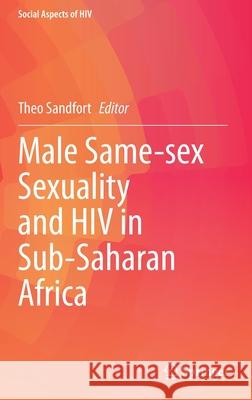Male Same-Sex Sexuality and HIV in Sub-Saharan Africa » książka
topmenu
Male Same-Sex Sexuality and HIV in Sub-Saharan Africa
ISBN-13: 9783030737252 / Angielski / Twarda / 2021 / 137 str.
Kategorie BISAC:
Wydawca:
Springer
Seria wydawnicza:
Język:
Angielski
ISBN-13:
9783030737252
Rok wydania:
2021
Wydanie:
2021
Numer serii:
000800284
Ilość stron:
137
Waga:
0.39 kg
Wymiary:
23.39 x 15.6 x 0.97
Oprawa:
Twarda
Wolumenów:
01
Dodatkowe informacje:
Wydanie ilustrowane











